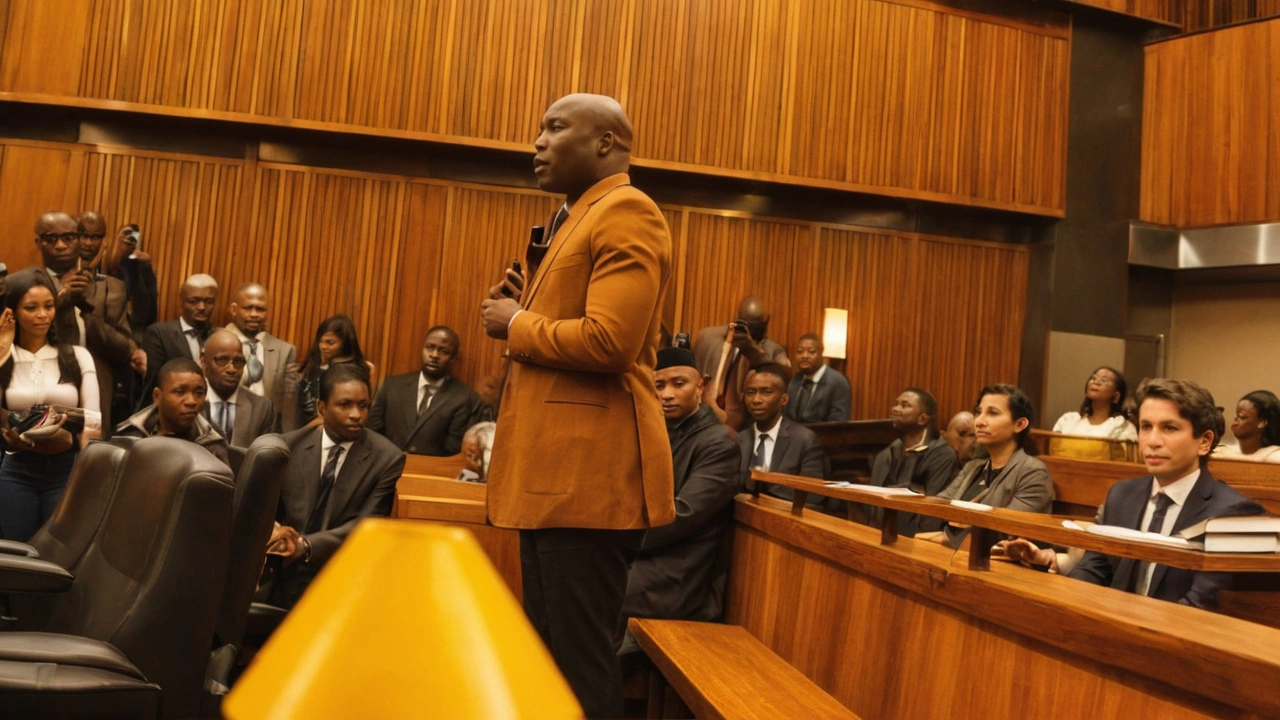Zizi Kodwa Steps Down Amid Corruption Allegations Tied to State Capture
In a dramatic turn of events, Zizi Kodwa, the former South African minister of sports, arts, and culture, has resigned from his position as a member of Parliament. This resignation follows serious allegations of corruption tied to state capture - a term that refers to a form of systemic corruption where private interests significantly influence a state's decision-making processes to their own advantage.
Kodwa is under scrutiny for allegedly receiving kickbacks amounting to more than R1.6 million from Jehan Mackay, the former CEO of EOH, a major technology services company. These kickbacks, it is claimed, funded a luxurious lifestyle for Kodwa in exchange for his influence and favoritism in securing government tenders for Mackay's company. The accusations reflect broader concerns about how political influence can be illicitly bought and sold, undermining public trust in governance.
The National Prosecuting Authority (NPA) has taken an active role in this case, preparing a line-up of no less than six witnesses who are expected to testify against Kodwa in court. These witnesses are anticipated to provide crucial evidence and insight into the intricate web of financial transactions and promises that allegedly underpinned this corruption scandal. The NPA's involvement underscores the case's high profile and the broader implications it may have on the political and economic landscape in South Africa.
The Allegations Against Kodwa
The detailed allegations against Kodwa paint a damning picture. He is accused of leveraging his significant political influence to benefit Mackay and his company, essentially 'selling' his ability to sway government decisions. This case forms part of the larger state capture narrative that has dwarfed South Africa's political discourse in recent years, involving several high-profile figures across various sectors.
According to the allegations, not only did Mackay funnel money into Kodwa's lifestyle, but there were also material benefits involved. It is alleged that Kodwa's personal and professional advancements were facilitated through these illicitly obtained funds, bringing to light severe ethical and legal breaches. This situation raises important questions about the accountability and integrity of elected officials.Corruption and malpractice within the ranks of political leadership have long been a bone of contention in South Africa, prompting widespread calls for systemic change.
Public Reaction and Political Ramifications
Kodwa's resignation was not entirely unexpected, given the mounting pressure from various quarters. Within the African National Congress (ANC), there was significant debate concerning his position. Some quarters demanded he step down, arguing that he should not draw a public salary or represent the ANC in the National Assembly amidst these severe allegations. Conversely, the ANC had initially defended his right to return to Parliament despite its 'step-aside' rule, which mandates that members charged with serious crimes should step aside from their roles pending investigation.
This dual stance within the party reflected a broader conflict about how to handle allegations of corruption among its ranks. For many, Kodwa's resignation represents a necessary step towards restoring some measure of integrity and accountability to the ANC and the South African Parliament. For others, it highlights the deep-seated issues within the party that require more comprehensive and systemic reforms.

Ongoing Legal Proceedings
The next steps in this unfolding drama will take place in the judicial arena, where the case against Kodwa is set to continue in August. The lining up of six witnesses by the NPA indicates a thorough investigation and a strong prosecutorial effort aimed at bringing the alleged misdeeds into the light of public scrutiny. These witnesses are expected to provide detailed accounts that could potentially substantiate the charges against Kodwa, shedding more light on the extent of his alleged involvement in corrupt activities.
This legal battle is not just a personal ordeal for Kodwa; it has broader implications for the fight against corruption in South Africa. The outcomes of this case may set important precedents for how corruption charges are handled within the political class, potentially influencing future cases and the public's perception of justice and accountability. It is a watchpoint for advocates of transparency and reform within governance structures.
Kodwa's Political Legacy and Future
Zizi Kodwa has been a prominent figure in South African politics, having held significant positions within the ANC and the government. His political journey has been marked by both achievements and controversies, making his current predicament a critical point in his career and legacy. The allegations of corruption touch upon his broader role and responsibilities, calling into question the ethical standards expected of public officials.
While the ongoing legal proceedings cast a shadow over his political future, it remains to be seen how this will ultimately unfold. If found guilty, the consequences could be severe, affecting not only his political career but also South Africa's ongoing efforts to address corruption and maintain the integrity of its governmental institutions. Conversely, if he is cleared of these charges, questions about the robustness of the initial investigations and the political motivations behind the accusations may arise.

A Turning Point for the ANC?
This case could represent a turning point for the ANC, which has been under significant scrutiny for how it manages internal corruption. The outcome of Kodwa's case might prompt the party to re-evaluate its policies and take stronger stances against corrupt practices within its ranks. It also draws attention to the need for enhanced transparency and accountability mechanisms within political institutions.
The ANC has been at the heart of South Africa's political landscape for decades, and its approach to handling corruption will be crucial in shaping public confidence moving forward. Measures taken in response to these high-profile cases could influence the party's reputation and effectiveness in leading the country through current and future challenges. Ultimately, this is not just a story about one man, but about an entrenched system and its capacity for change.
Conclusion
Zizi Kodwa's resignation amid corruption allegations is a significant event with far-reaching implications for South African politics. It illuminates the ongoing struggles between personal gain and public service, and the constant need for vigilance against practices that undermine democratic principles and the public trust. As legal proceedings continue, the nation watches closely, pondering the broader messages this case will send about accountability and the rule of law.
The coming months will be crucial in determining not only Kodwa's fate but also the integrity of South Africa's political institutions. This is a period ripe for reflection, reform, and perhaps, a renewal of the commitment to genuine public service and ethical governance.

Comments